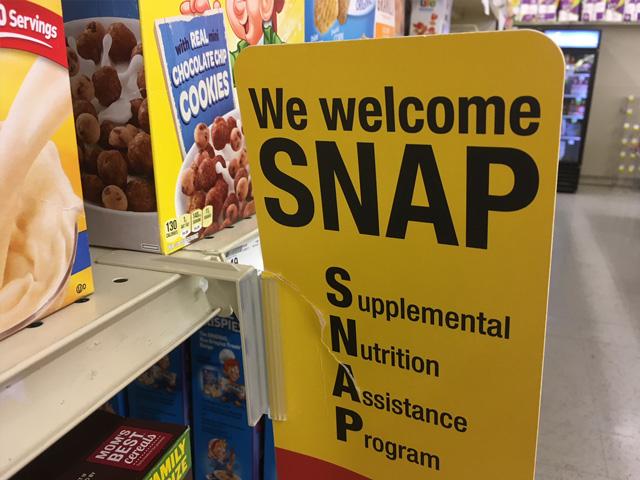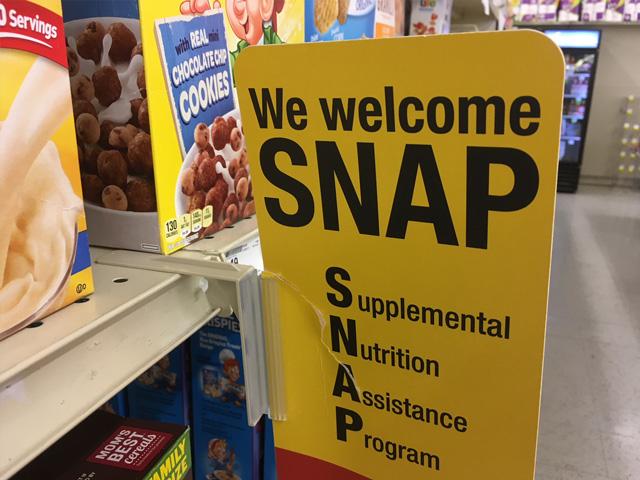Ag Policy Blog
Rollins, Kennedy in Arkansas, Indiana Pressing for SNAP Restrictions
WASHINGTON (DTN) -- The governors of Arkansas and Indiana on Tuesday asked USDA to allow them to ban soda and candy purchases under the Supplemental Nutrition Assistance Program (SNAP), which provides food purchasing power for about 40 million low-income Americans.
Agriculture Secretary Brooke Rollins was present in Little Rock at a news conference with Arkansas Gov. Sarah Huckabee Sanders, a Republican, and Health and Human Services Secretary Robert Kennedy Jr. was present at a news conference with Indiana Gov. Mike Braun, also a Republican, the Associated Press reported. As a senator, Braun said that as a businessman he had insisted his staff live a healthy lifestyle and pointed out that he saved the cost of health insurance premiums.
HHS livestreamed the Indiana event.
In a news release, Huckabee Sanders said, "President Trump and his administration have put a laser focus on solving America's chronic disease epidemic, and reforming our food stamp program is a great place to start," Sanders said. "Banning soft drinks and candy from food stamps will remove some of the least healthy, most processed foods from the program and encourage low-income Arkansans to eat better. Arkansas leads the nation in common-sense, conservative reforms, and I was proud to work with Secretary Rollins to make this move and take a strong first step toward broader changes to our food stamp program."
Rollins said in a news release, "Gov. Sanders is confronting childhood disease head on, and it starts with what families consume. Today's waiver announcement is a welcome one, and I look forward to moving through the approval process swiftly. I encourage more states across the nation to follow the bold lead of states like Arkansas as we Make America Healthy Again."
While Rollins has championed restrictions on SNAP with the focus on "Make America Healthy Again," it also should be noted USDA over the past two months has cut more than $1 billion funding for local food purchases of fruits and vegetables and cut funding to food banks that also provide produce to lower-income people.
USDA runs SNAP, but Kennedy made healthy eating a part of his presidential campaign and continued it when he endorsed Trump. Restricting SNAP benefits is also part of the agenda of the Make America Healthy Again movement.
Under SNAP, beneficiaries can purchase all foods except hot foods, but Sanders asked that USDA also allow beneficiaries to buy hot rotisserie chickens. The poultry industry is important to the Arkansas economy.
Braun also signed nine executive orders on healthy living, including one to conduct research on the health impacts of food dyes, one of Kennedy's priorities, while another focuses on buying food locally.
The willingness of Republican governors to ask for the waivers to restrict SNAP benefits reflects changing politics. In the past, Republicans have generally sided with the food industry and anti-hunger advocates who oppose restrictions on what low-income Americans can buy with their benefits. Nutritionists and some Democrats have favored the restrictions on the grounds that consuming large amounts of soda and candy lead to health problems and additional federal spending through Medicaid.
The National Grocers Association (NGA), which represents the independent supermarket operators who serve communities across the country, called on states to "carefully consider the unintended consequences to Main Street grocers that may arise as they work to approve waivers for the restriction of certain foods" in SNAP.
P[L1] D[0x0] M[300x250] OOP[F] ADUNIT[] T[]
NGA stated restrictions tied to SNAP food purchases could have far-reaching consequences for Main Street businesses.
"To help minimize the potential effects on Main Street grocers, we strongly urge the USDA and state agencies to provide independent grocers with clear guidance, sufficient training, and strong communication to limit disruptions for SNAP recipients and other customers while waivers are in effect," the grocers' group stated.
Other states also are looking at changes. A bill in the Iowa Legislature would more aggressively limit food eligibility under SNAP
Christopher Gindlesperger, senior vice president of public affairs and communications at the National Confectioners Association, said in an email, "This policy approach is misguided and not needed when it comes to chocolate and candy. SNAP participants and non-SNAP participants alike understand that chocolate and candy are treats -- not meal replacements. In fact, candy purchasing patterns are basically equivalent between SNAP and non-SNAP families -- with only about 2% of SNAP purchases being candy. Consumers have a unique mindset when they enjoy chocolate and candy that is not present when interacting with other foods -- whether or not they are using SNAP benefits for food purchases."
American Beverage, which represents the soda companies, issued separate statements on the Arkansas and Indiana submissions.
Of the Arkansas submission, American Beverage said, "It's disappointing that Gov. Sanders and Secretary Rollins are choosing to be the food police rather than take truly meaningful steps to lift people off SNAP with good-paying jobs. Nearly 80% of families on SNAP work, they just don't make enough to make ends meet. Low-income working families were promised a new, better era and not to be left behind again. Instead, they're being denigrated and treated like second-class citizens.
"Make no mistake: This waiver won't make an ounce of difference on health. Obesity has skyrocketed in the last two decades while beverage calories per serving have dropped by 42% -- thanks to our industry's efforts to empower Americans with more choice and information. In fact, 60% of beverages Americans buy today have zero sugar due to our innovation.
"If Gov. Sanders is serious about making Arkansas healthy again, this would be a comprehensive effort -- not one narrowly focused on excluding one population from buying just two sets of products in the grocery store.
"If the governor is sincere about what taxpayers can buy with SNAP dollars, this sends a ridiculously conflicted message: It's OK to buy a wide array of desserts, snack cakes and treats, just not soda and candy. How does that make sense? Now if Arkansas really wanted to save its taxpayers money, it could eliminate the $44.7 million in SNAP fraud and overpayments in the state.
"America's beverage companies will always stand with our consumers and their right to make the best decisions for their families. We are working every day to deliver more choices and information and do our part in making America healthier. And we're providing the good-paying, family-supporting jobs the president wants -- the type of jobs that don't require you to be on SNAP in the first place. Just as with our consumers, our workers and products don't deserve to be denigrated either."
Of the Indiana submission, American Beverage said, "Restricting SNAP purchases or banning safe ingredients won't make anyone healthier -- they only create headlines. Rather, they're punitive policies that leverage fearmongering and misinformation while taking decisions away from Hoosiers and giving them to government. The outcome? Empty grocery store shelves, increased prices and cashiers forced to be the food police.
"Not to mention, Secretary Kennedy continues to focus on SNAP -- an issue not within his purview at the Department of Health and Human Services.
"We will always work with Gov. Braun to make Indiana's families stronger. Providing Americans with more choices along with clear, transparent information is the better way to help improve our health. And America's beverage companies have been leading the way with meaningful solutions for decades.
"We are proud to be part of Indiana communities -- providing 5,000 good-paying jobs and supporting 85,000 more. Today's proposals put their future and investment in Indiana at risk."
Gina Plata-Nino, a deputy director at the Food Research and Action Center, an anti-hunger group that lobbies on SNAP, told the AP: "They just seem to be targeting a specific population without having data that says that they are the issue or that this is going to improve."
DTN Ag Policy Editor Chris Clayton contributed to this article.
Jerry Hagstrom can be reached at jhagstrom@nationaljournal.com
Follow him on social platform X @hagstromreport
(c) Copyright 2025 DTN, LLC. All rights reserved.






Comments
To comment, please Log In or Join our Community .